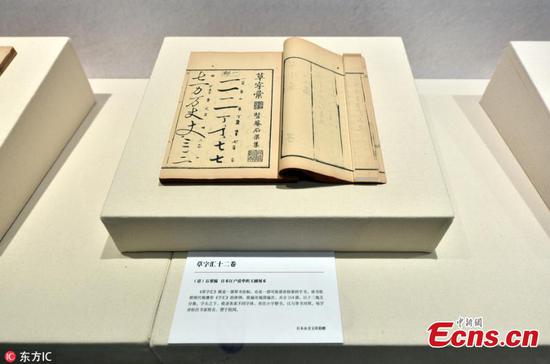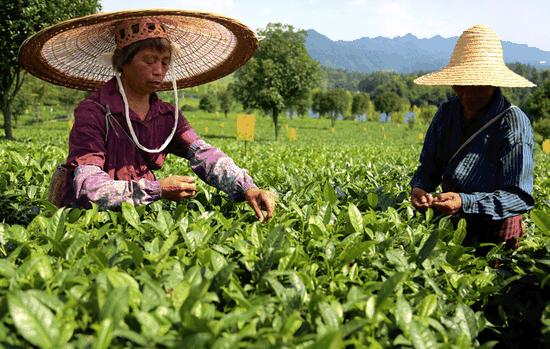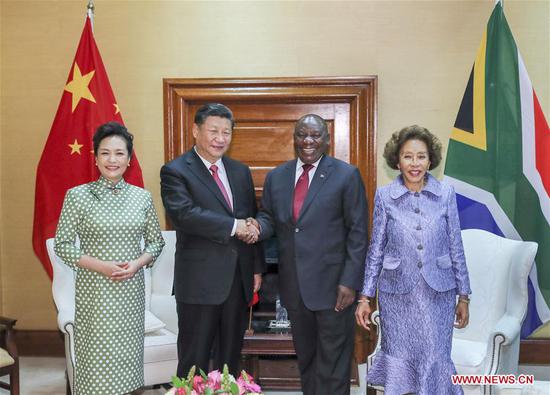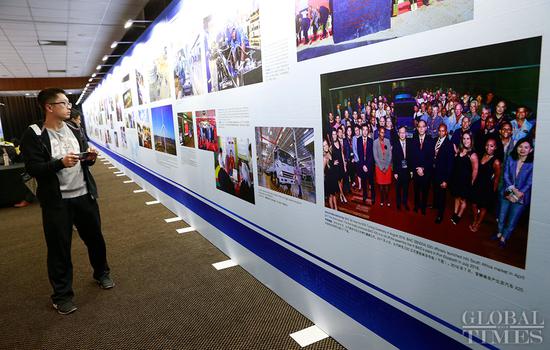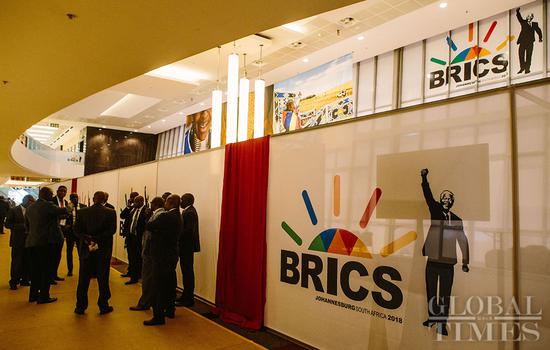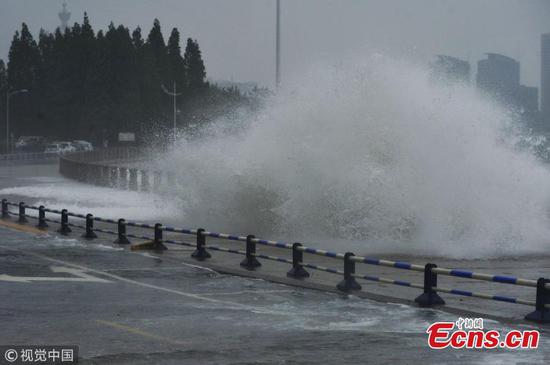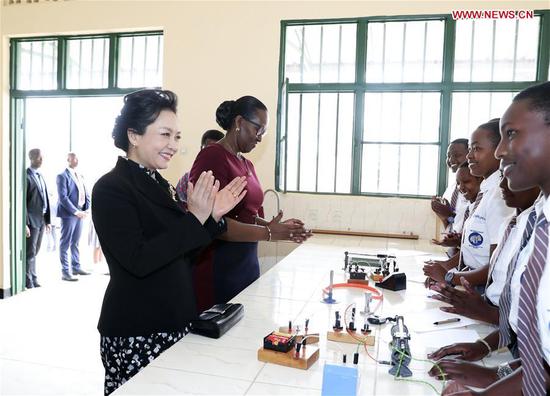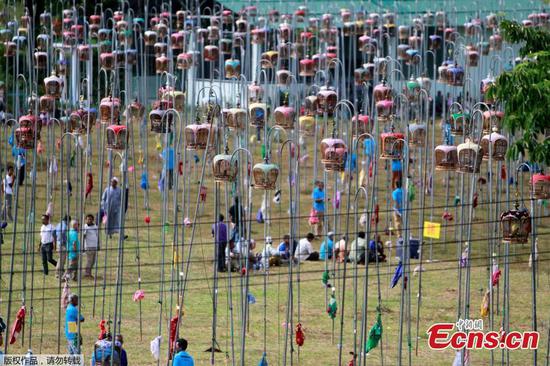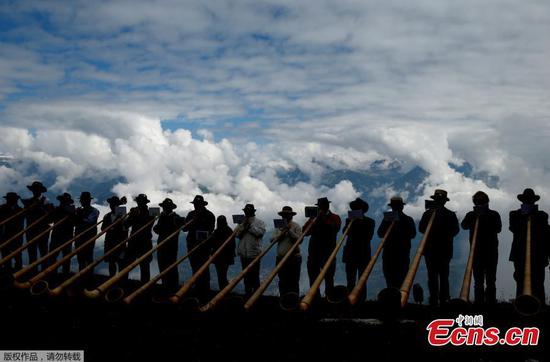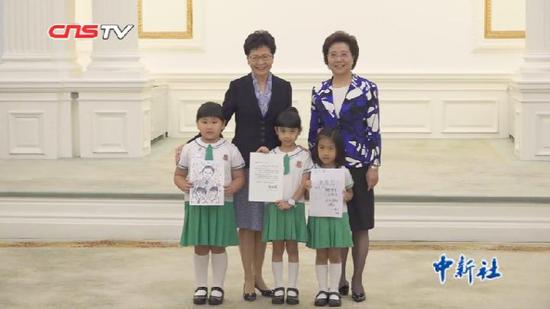China-India ties on the mend
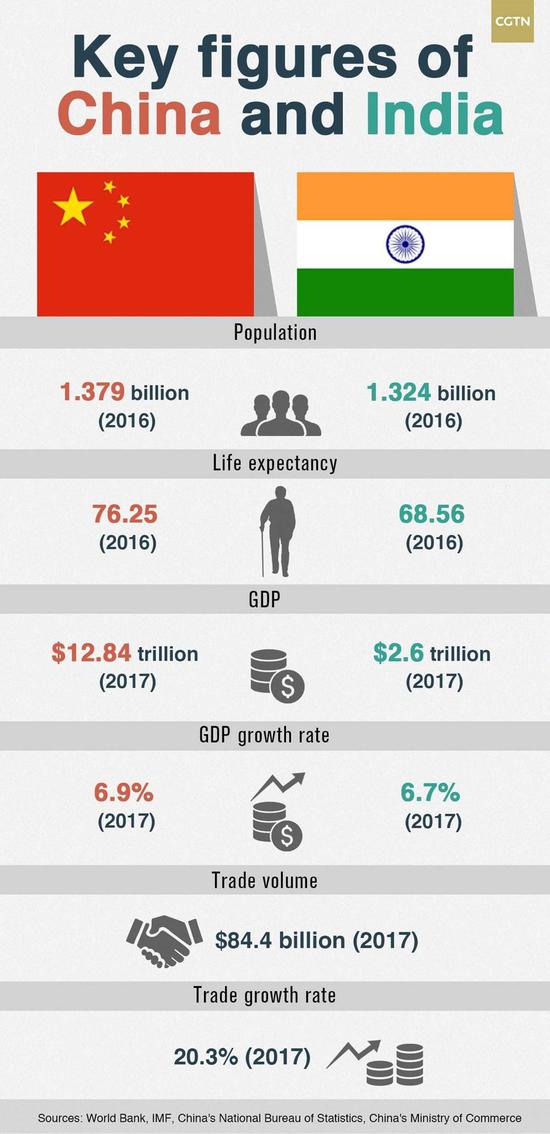
China-India ties are the trickiest among the three pairs of relations between Beijing, Moscow and New Delhi. The two countries still have unresolved border disputes, and India has yet to endorse the China-proposed Belt and Road Initiative. Last summer, China and India even had a two-month military standoff in the border area of Donglang (Doklam).
Nevertheless, gradual rapprochement has been going on since then. Days after the conclusion of the standoff, Xi and Modi held talks on the sidelines of the ninth BRICS summit in Chinese city Xiamen in September 2017, agreeing that the two countries should not see each other as rivals or threats. The Chinese president stressed that peaceful coexistence and win-win cooperation are the only right choice for the two sides.
Hence it was at last year's BRICS summit that the process of China-India rapprochement kicked off.
The process started to gather pace in late April, when the Indian prime minister came to central China's Wuhan for an informal meeting with Xi. The visit took place six weeks ahead of the SCO summit in Qingdao – the first SCO summit attended by Modi after India was admitted to the bloc last year.
"China and India should be good neighbors and friends," Xi said. "The two countries should regard each other as a positive factor in the balance of global power and take each other as partners for realizing the dream of development."
Modi suggested that the two sides should strengthen contacts and cooperation, enhance mutual understanding and trust, properly handle and control their differences and boost people-to-people friendship, so as to upgrade bilateral relations to a new level.
When they met in Qingdao last month, both leaders agreed to work on the basis of the successful Wuhan meeting to enhance political mutual trust and engage in mutually beneficial cooperation.
Despite ups and downs in their relations, China and India have been making efforts to enhance communication, expand common ground and deepen mutual trust.
In an interview with CGTN earlier this year, Indian economist Ajit Ranade said "it was wrong to say all of India sees China as a threat" and stressed that there were "huge opportunities" for cooperation.
The optimism originated from some fundamental factors binding the two countries together: both are major developing countries and emerging markets; they share common interests, concerns and propositions; their economies are complementary and there is huge potential for further cooperation.
Anti-protectionism triangle?
Chinese and Russian leaders repeatedly hail that bilateral relations are at their "best time in history." Traditional partnership between Russia and India is still robust. And China-India ties are back on the right track. Moreover, the three emerging powers agree on a broad range of principles in dealing with global issues.
After attending the 15th Meeting of Foreign Ministers of China, Russia and India in New Delhi last December, Chinese Foreign Minister Wang Yi said the three sides had agreed to make joint efforts to rebalance globalization, uphold the global multilateral trade system, and oppose all forms of protectionism.
The three key members of BRICS enjoy closer understanding today than they did before the Xiamen summit last year, India's former envoy to South Africa Rajeev Bhatia stressed in an article for the Mumbai-based Gateway House think tank.
These are encouraging signals ahead of the BRICS summit in Johannesburg, where the leaders are expected to present a united front against unilateralism and trade protectionism.
In the context of escalated trade tensions between the U.S. and China as well as other countries, the threat of a global trade war could top the agenda of the summit, an AFP story said on Tuesday.
"This is a trade war, so leaders' discussions are particular important in coordinating out positions," Russian Economy Minister Maxim Oreshkin said last week.
Sreeram Chaulia, a professor at the Jindal School of International Affairs of India's O.P. Jindal Global University, said BRICS leaders would "concur that the U.S. has unleashed punitive trade wars that are hurting all the BRICS members," according to the AFP report.
A planned meeting between Xi and Modi on the sidelines of the summit is likely to feature the topic as well. "The U.S. protectionist and unilateral acts have caused widespread and grave concerns worldwide," Chinese Foreign Ministry spokeswoman Hua Chunying said last Friday in response to a question about the agenda of the meeting. "China and India are both staunch supporters of multilateralism and an open world economy, and we both oppose protectionism."
A BRICS summit alone will not resolve all outstanding issues between China, Russia and India, but it is an opportunity for major developing countries of the world to focus on their commonalities and take concerted action to tackle common challenges and pursue common goals.









